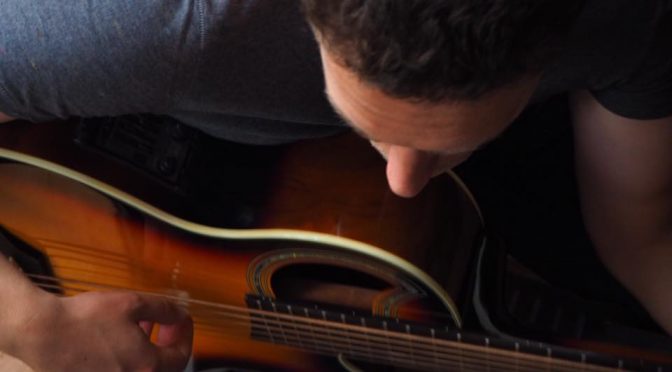Acoustic Bass Guitar – Bass Practice Diary – 18th September 2018
I wanted to put out a video where I talk about acoustic bass guitars. What are they for and how to use them? I’ve been playing acoustic bass guitars for more than half of my life and for a long time I struggled to figure out exactly how to get the best out of them. Finally after close to twenty years, I feel like I have a clear idea of how I like to play acoustic bass guitar. And more importantly, why I like use them.
Every Instrument Has it’s Own Identity… Right?
I feel that the acoustic bass guitar hasn’t yet fully found its own identity. Some people like to use it as a way of sounding more like an upright bass, I would never use it for that reason. Partly because I don’t think it sounds very much like an upright bass. But also because I have an upright bass. Conversely, some people play it like it’s an electric bass. But it isn’t either of those things. So, where’s it’s identity as an instrument?
We don’t even seem to have decided what are the best strings to use. Many acoustic basses are sold with bronze coloured strings like an acoustic guitar. But I’ve heard bass players and technicians tell me that they use electric bass strings on their acoustics because they think they work better.
It’s still a fairly young instrument. Its not like the acoustic guitar and the electric guitar. The acoustic guitar has existed much longer than the electric guitar and clearly has a very strong identity of it’s own. But the acoustic bass guitar doesn’t have the same extensive history.
I see people on the internet trying to do original things with acoustic bass guitars. Maybe we’ll look back in twenty or thirty years and we’ll clearly be able to see where the acoustic bass guitar was heading. But for now I see a lot of people trying things. Like the Andy McKee/Newton Faulkner acoustic guitar thing. Where you strike the body of the instrument with your hands to imitate drum and percussion sounds. Which sounds cool but I think it works better on acoustic guitars. Or I see people playing slap bass techniques, which I think work better on electric bass. It all sounds good but I’m not sure it’s where the identity of the instrument lies.
Why I Play Acoustic Bass Guitars?
Because I love having an acoustic instrument that I can express myself on. There’s so much I can do on my acoustic bass guitar that I can’t do on an upright bass. Especially relating to playing chords and arranging solos. You can arrange entire pieces on solo acoustic bass guitar. You can also sing with an acoustic bass guitar.
I would always choose to play mine either on my own or as part of a small group. A duo or probably maximum a trio. I wouldn’t choose to play it as part of a larger group. I just think that the subtleties get lost. I think that if you’re playing in a larger group you’re probably better off playing electric basses or upright basses.
A big development for me was when I switched to playing a six string acoustic bass. I’ve been playing six string electric basses since I was a teenager. But, I only got this Warwick Alien Deluxe six string acoustic bass guitar about five years ago. I think it’s only in relatively recent years that six string acoustic bass guitars are being manufactured at an affordable price and are good enough quality to perform with.
The Warwick Alien acoustics really are magnificent instruments. They’re well balanced and playable and they don’t cost a fortune.
You can find out more about my Warwick Alien Deluxe here.
Who Else Plays Acoustic Bass Guitars?
One person who I’ve seem playing in a very original style on acoustic bass guitar is the jazz bassist and composer Steve Swallow.
You can check out a performance by his band here.
He started his career as an upright bassist and he switched to electric bass and then acoustic bass guitar. He has a very unique style and he seems to have found a unique use for an acoustic bass guitar. But whether his style will be taken on by others and turned into an identity for the instrument remains to be seen.


3 thoughts on “Why I Play an Acoustic Bass Guitar – Bass Practice Diary 22”
Comments are closed.